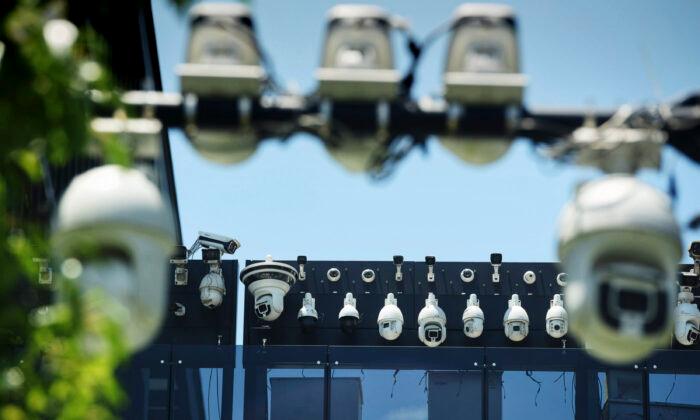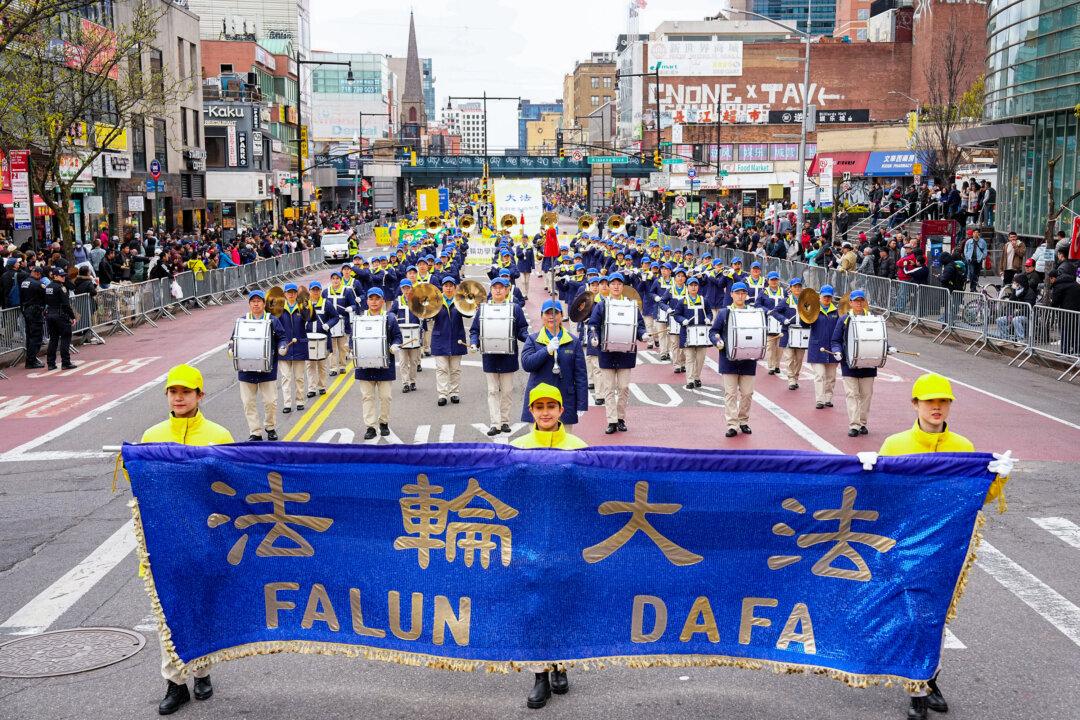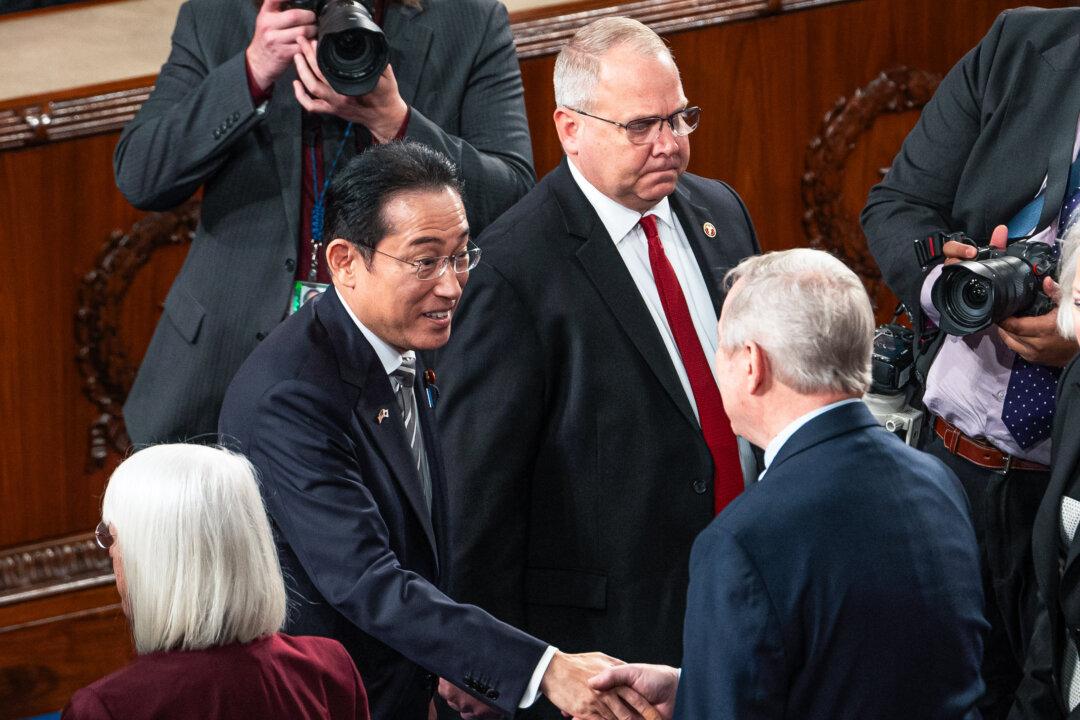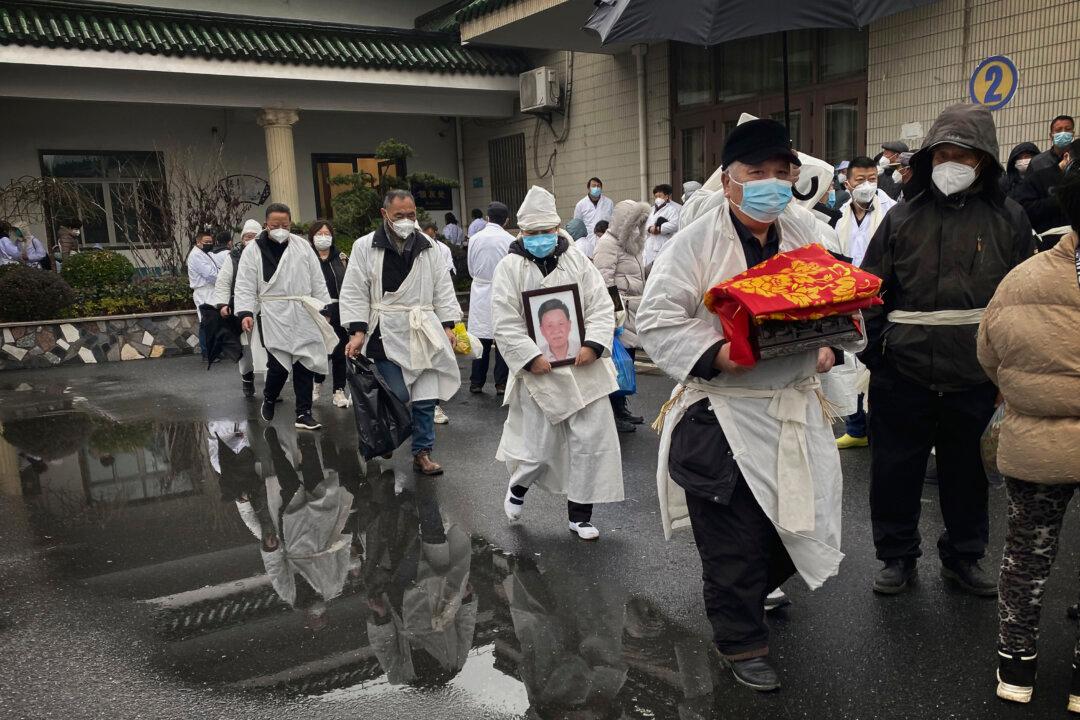The world depicted in George Orwell’s “1984” and “Animal Farm” is often used as an analogy for totalitarian states, such as China. Recently, the Chinese Communist Party (CCP) is taking the “big brother” tactic of surveillance and control of citizens to a new level, building internet grids to watch and implicate the “whole clan” by association, sneakily monitoring private cellphones and even installing cameras inside people’s homes.
CCP Consolidates and Expands Surveillance System
The Epoch Times recently obtained internal documents from local governments showing that the CCP’s surveillance of the people has expanded the internet and video surveillance systems of “Skynet” and “Xueliang Project” from the public security (Chinese police) department to the departments of urban management, environmental protection, transportation, and education. The regime is building a three-dimensional comprehensive monitoring system, drawing resources from various departments. Even private homes are not spared. This is a systemic invasion of privacy, as shown in the internal documents from various regions.For example, the Cixian Political and Legal Committee of Handan city, Hebei Province has issued the “Survey Report on Strengthening and Innovating Social Management.” It stated in 2019 that the “Xueliang Project” was used to improve the standardized construction of the comprehensive management center, and required “to share and gradually connect the monitoring resources of the public security, urban management, environmental protection, safety supervision, food and drug supervision, transportation, education and other departments to the monitoring platform of the county’s comprehensive management center.”
According to the 2020 “Key Work Accounts for Informatization” of the Dingzhou Municipal Government of Hebei Province, the focus of this year’s informatization work is to integrate the city’s video surveillance resources, including “integrating the video surveillance equipments of public security, urban management, traffic police, and environmental protection departments. Even the online car-hailing system is not spared, as the document required “to activate the monitoring platform for online ride-hailing service.”
‘Big Brother’ Inside People’s Homes
Two years ago, when the Chinese regime installed cameras on the front doors of people’s homes, it caused a public outcry and attracted attention from international media for its brazen invasion of people’s privacy. Now the regime takes it to a new level by installing cameras inside people’s homes.In the leaked document, the “Committee of Comprehensive Management of Social Governance” of Tangshan city, Hebei Province, the stability maintenance organization of the CCP issued the notice of “Key Points for Comprehensive Management of Social Security and Safety Construction in Tangshan City in 2017.” It is required to promote the construction of the “Xueliang Project” by “extending video surveillance into people’s homes or using apps to access and check people’s mobile phones.” The “Xueliang Project” refers to the video surveillance system built for the surveillance of rural areas, complementary to the “Skynet Project” which covers urban areas.
Invasive Surveillance Method Used in Persecuting Falun Gong
Such invasive and aggressive surveillance measures have been used in the CCP’s persecution of Falun Gong practitioners. In February, during the nationwide lockdown due to the COVID-19 pandemic, Falun Gong practitioner Chang Xiuhua from Huanan county, Jiamusi city, Heilongjiang Province, was kidnapped by the CCP’s national security police and sent to Jiamusi Detention Center. However, due to the lockdown, the detention center refused to take her in. Then national security police Li Xiaolin and other local officials decided to put Chang in forced “quarantine” at home for six months, with a camera installed inside her home for 24-hour real-time monitoring. But law experts say it’s totally illegal.Chen Jiangang, a former mainland human rights lawyer and visiting scholar at the Washington School of Law of the American University, told The Epoch Times in an interview on Aug. 25: “From a legal point of view, this is obviously illegal. … The police do not have the right to install a camera in a person’s home to monitor her every move. What is reflected in this case is the complete deprivation of human rights, privacy rights, and other rights, such as individual freedom of movement. The CCP knows that it is illegal for them to do so.”
Former mainland human rights lawyer Peng Yongfeng told the publication in an interview on Aug. 28 that according to Article 245 of China’s criminal law, “anyone who illegally does a body search or illegally does a search on private property shall be sentenced to fixed-term imprisonment of not more than three years or criminal detention. Judicial personnel who abuse their powers and commit the crimes mentioned in the preceding paragraph shall be severely punished.”
Peng said that the national security police in Huanan county violated the law. “The police use equipment to monitor Falun Gong practitioners and even install cameras in their homes, which seriously violates citizens’ rights, violates citizens’ right to privacy, and infringes on personal information. These rights are protected by China’s law.”
Internet Grids Monitor Citizens
The CCP has spent a lot of money to build internet grids in each city to surveil citizens and punish them in groups as a modern day “implication of the whole clan.” These are directly done by the Party branches instead of governmental organizations. It’s similar to that of Mao Zedong’s era when cities were split into grids as socialist units tightly controlled by the Party’s branches. Now it’s done through the internet, as revealed by internal documents obtained by The Epoch Times.The Huangshan Municipal Law Commission spelled out in an internal document that one of the measures to strengthen safety construction (maintain stability) is to base itself on internet grids and extend its reach of social control in the city. Specifically, it includes building the Party branch on each grid to integrate the Party group grid with the social management grid, and using the “dual network integration” to strengthen the grid.
The CCP has also spent 300 million yuan in building a “Skynet” to cover both urban and rural areas, the document revealed.
The Bengbu Municipal Law Commission disclosed in the document, titled “Strive to Improve the Modern Standard Support System for Municipal Social Governance,” that Bengbu city recruited more than 1,000 full-time internet grid personnel with a college degree or above in 2017 and 2018. 80 million yuan were allocated each year for just keeping them to cover the whole city with the density of “one grid staff per grid.”
According to the leaked document “Project Schedule” of Wuhu city, Anhui Province, the “Xueliang Project” launched in August 2018 had a total investment of 290 million yuan; compared to the city’s budgets of 1.65 billion yuan and 1.08 billion yuan on education and medical care that year. In 2018, Wuhu’s population was nearly 4 million.
The document also disclosed a special function of the comprehensive governance information system of the Anhui Provincial Political and Legal Committee, which is called “people’s profile.” When a person’s ID information is entered, the computer system can bring out the relationship map of the person. The company iFlytek that helped the Anhui government build the information system was sanctioned by the United States in 2019.
Li Linyi analyzes that this function means that the CCP has included people’s relationship charts of relatives and friends into its stability maintenance surveillance system. This is actually the CCP’s implementation of “implication of the whole clan” in the modern age, watching and punishing people and their families, friends and social relations.




